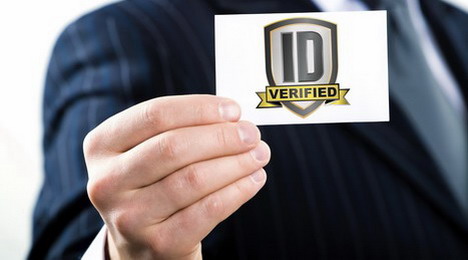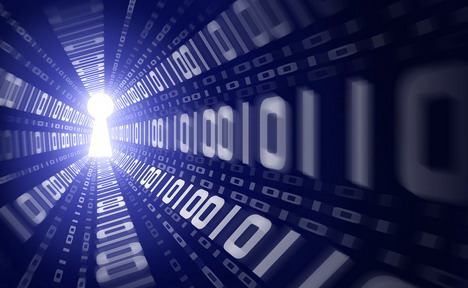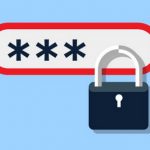The Future of Security on Social Networks
The social networking bug has bitten and gone viral. With invitations to join Facebook, Twitter, LinkedIn, Google Plus, MySpace and many more streaming through the inbox and endless new networks cropping up by the day, connecting with friends, family and business associates all on one platform, has never been easier.
For example, take Facebook. A name synonymous with social networking, this media powerhouse has taken the Internet by storm. If its popularity is anything to go by, the user count is predicted to run into billions in the next few years. Add to this the amount of private information being uploaded every second on hundreds of social networks that overrun the web and what you get is a strong requirement for security measures to be firmly established.
Why It Is Essential to Verify Identity
While a click may unite you with friends you’ve been trying to locate for years or get connected to that dream job you’ve always wanted, social networks are a magnet for cyber criminals posing as long-lost friends, acquaintances or business associates. Often, identities are compromised and security glitches left exposed. Identity fraud is on the rise with no sign of abating. Here lies the urgent need to verify the identity of users.
The easy accessibility of information on social networks can bring on major security issues. Often, personal information such as names, birth dates, phone numbers etc. can be easily accessed as users openly share such information on their profiles which are seen by thousands of visitors, making it child’s play for identity thieves to steal such information and use it falsely. When social networks make it mandatory to verify identity of every user accessing their website, it can cut down on identity theft to a great extent and protect the accounts of genuine users.
The perks of open sharing of information may be plenty but these are often offset by the dangers that the exposure of sensitive data can create. The real identity of an individual is often hidden in the creation of a fake profile, which is then becomes the base for carrying out fraudulent activities on the web. The Internet being a sphere where anonymity is easily achieved, phishers use this to their advantage to latch onto unsuspecting victims.
Working Towards Tighter Security Controls
The rise of social networking has created a bigger role for identity and access management. Management of users’ identities on the web originated from the need to provide users with a seamless integration between their real identities and their online avatars. As an online profile is an extension of an individual’s personality, managing identities is a significantaction that every social network needs to look at. Developing systems that help users manage their accounts profitably and securely can help increase the credibility of social networks in the midst of an increasing number of high-profile hacks. It can also enable the reduction of costs that are generated as result of online fraud and phishing attacks.
With a greater need to define and manage people’s identities, social networks have begun to realize its importance. Methods such as Age verification authenticating a user’s age while signing up to a network and Knowledge-Based Authentication (KBA) in which questions based on a user’s personal data are generated to help verify his identity, are being widely used.
A company formed to deal with cases of fraud online, Telesign works towards providing a platform for social networks in the areas of identity authentication to minimize the incidences of fraud on the web by providing a two factor authentication (2FA) service. Through the use of a mobile phone, an access code is provided to users signing onto social networks, which is an add-on to a unique password.
While Facebook and Google have been using two-factor authentication for a while now, Twitter and LinkedIn are the latest online communities to follow suit to ensure that users have a higher degree of protection from online hacks.
Also, systems like the development of an online fraud repository such as TeleBureau helps websites to report suspicious links or transactions on the web so that they as well as other businesses can be protected against malicious attacks. All information provided stays confidential and is not shared with any third party. As this is another method that is conducive in monitoring fraud on the web and protect online users from phishing attacks, the security provided by social networks looks to be heading in the right direction.
The future of security controls on social networks seems to be on a promising trajectory. While social networks experiment with newer methods of security control such as biometrics as well as sharpen the existing systems of two-step verification and development of fraud repositories, improved efforts are being made to secure users’ identities.
With ideas such as online ID tags, brainwave identification and many such futuristic security measures rumoured to be doing the rounds, it is an exciting phase in the development of security controls for the future.
Altering Perceptions of Security on Social Networks
With the recent Snowden revelations stirring up public opinion about companies like Facebook and Google reportedly feeding private data to the government, social networks are on a precipice at the moment. While the debate rages on, the fact remains that social networks are at the crux of the war against cybercrime and will have a bigger role to play even as online security and privacy issues get pushed to the forefront.To earn back the trust of the public, social networks have to look beyond traditional security controls and work towards a more transparent yet secure system.
While it remains the responsibility of social networks to implement better security features, it’s important that users stick to the basics while opening an account on a social network: keeping unique passwords that are extremely difficult to guess, making sure the each account has a different password as well as changing passwords monthly or once every couple of months.
Social networks hold immense power over the lives of individuals and this power brings a responsibility of making social networks a safer place. This can only be done when security systems are firmly put in place without compromising the safety of users.
Author: James Brown
James Brown is a business and technology blogger living in Los Angeles, CA. He likes to share his knowledge by writing articles for high-quality blogs/websites. And he is crazy about baseball.
You May Also Like:
 Best Times to Get Most Likes, Shares & Tweets on Social Networks
Best Times to Get Most Likes, Shares & Tweets on Social Networks
 4 Online Tools to Search Hashtags from Multiple Social Networks
4 Online Tools to Search Hashtags from Multiple Social Networks
 10 Niche Social Networks You Might Have Missed
10 Niche Social Networks You Might Have Missed
 Myth or Fact: How Blockchain is Impacting Social Media
Myth or Fact: How Blockchain is Impacting Social Media
 Best Times to Publish Blog Posts on Social Networks
Best Times to Publish Blog Posts on Social Networks
 10 Reasons Why Hackers Like Your Shares on Social Media
10 Reasons Why Hackers Like Your Shares on Social Media
 10 Ways How Hackers Attack Your Social Media Accounts
10 Ways How Hackers Attack Your Social Media Accounts
 What is The Future of Social Search?
What is The Future of Social Search?
Tags: it knowledge, password, privacy & security, social media
Comments are closed.





































